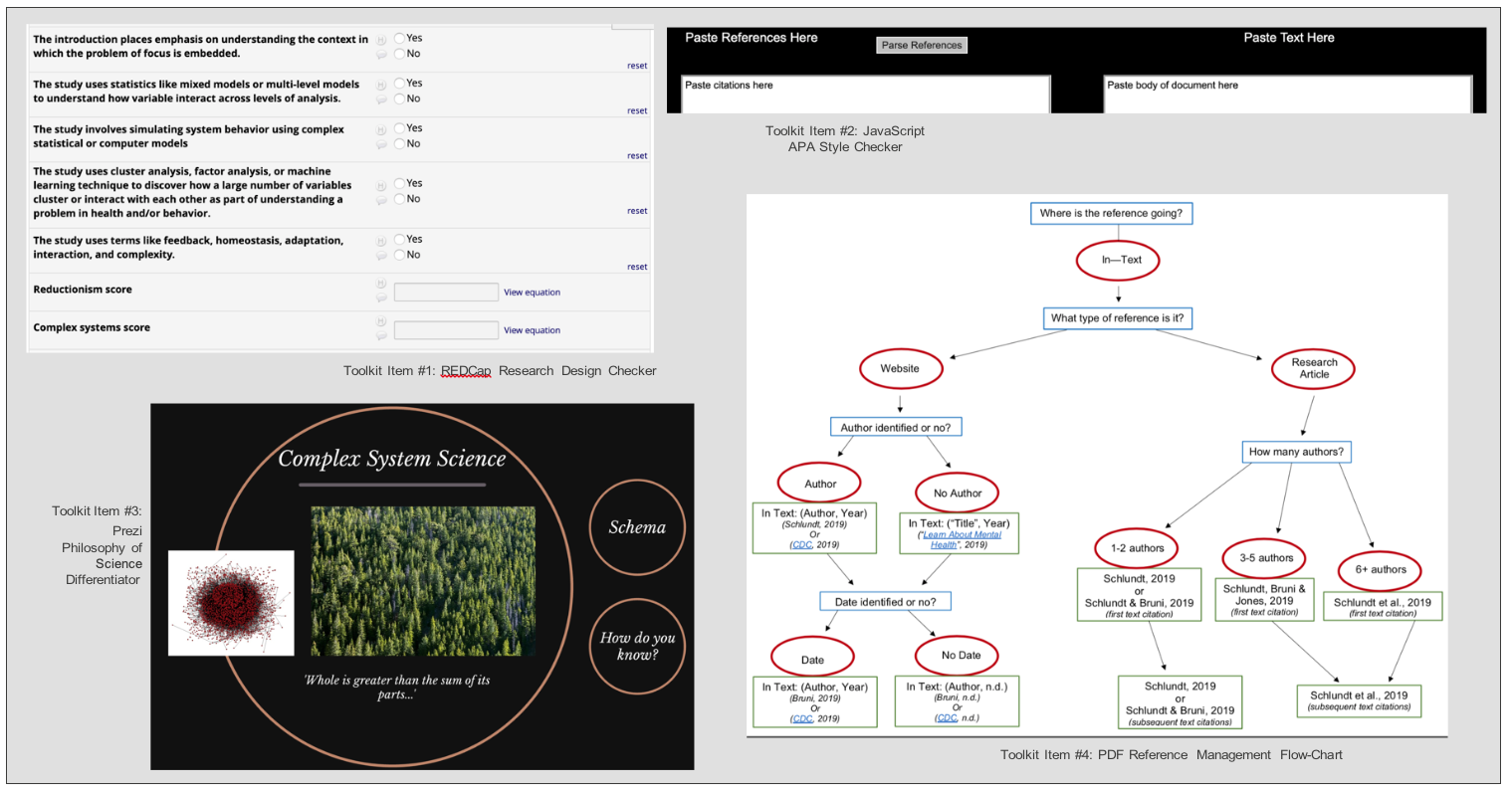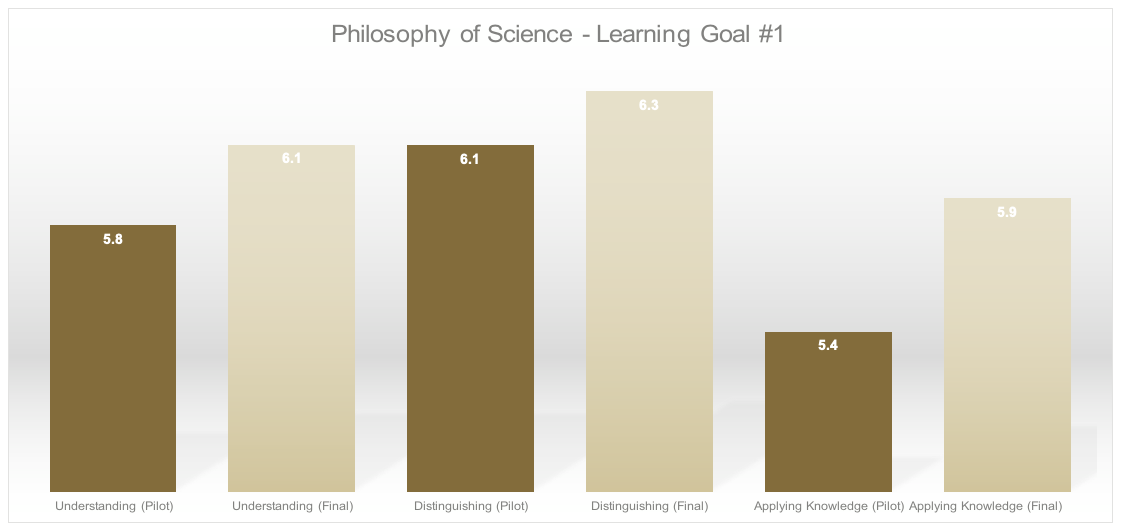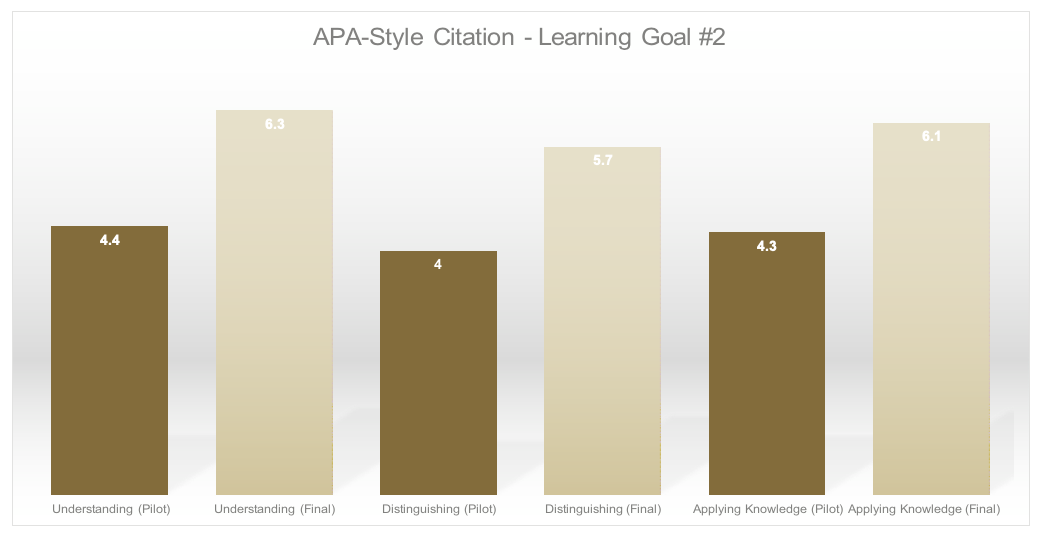PSY 3635: Health Psychology
 Pietra Bruni working with
Pietra Bruni working with
David Schlundt, Associate Professor of Psychology
Background
PSY 3635: Health Psychology is an upper-level, undergraduate course taught in the Psychology Department at Vanderbilt University. Health Psychology is the application of the theories and methods of psychology to understanding, treating and preventing disease and for promoting health, longevity, and well-being for individuals and populations. This course looks at how psychology intersects with the other social sciences, medicine, and public health.
There are several main learning objectives in Health Psychology, which include:
- To examine different models of understanding health & health behavior
- To learn to access the scientific literature on health and behavior, and write about the literature using the concepts covered in class
- To improve students’ ability to write as social scientists, including targeted assignments that help students better understand key course concepts and practice writing critically about research studies related to health and behavior
Motivation
Problem: Advanced undergraduate students enter this course without a working understanding of how to be effective consumers and translators of social science literature. As the majority of students in Health Psychology intend to pursue careers in the clinical or biomedical sciences, ensuring that students leave this course with a firm understanding of the identified learning objectives is of the utmost importance
Specifics: After one semester of qualitative examination, it was observed that students enrolled in Health Psychology were still exhibiting fundamental errors on the final assignment and assessment completed at the end of the course. Inaccuracies in three domains corresponding to the previously identified learning objectives were repeatedly observed, including:
- Incorrectly identifying the features of different scientific research theories
- Errors in selecting appropriate journal articles to reference
- Issues with technical writing and the inclusion of appropriate APA-style citations
Goal: To address this knowledge-gap and ‘problem’ in the Health Psychology course, it was our goal to design and develop online instructional materials to assist students in becoming effective consumers of social science literature. We identified two specific learning goals:
- Help students identify the differences between two fundamentally distinct approaches used in the philosophy of science (reductionism complex systems), in addition to different research designs (case control vs. prospective cohort vs. clinical trial)
- Help students develop a comprehensive understanding of APA-style citations (both in-text & references), and accurately apply this knowledge
Rationale: We identified a “toolkit” design as the most effective digital learning module to implement in Health Psychology. Previous research has shown that in a college classroom, it is typical for there to be significant variation in student learning style (Truong, 2016). Identifying a student’s “best way of learning” increases the likelihood of successful application and retention of relevant material (Entwistle & Ramsden, 2015). Providing a variety of online learning resources that differ in how they encourage students to engage with challenging course material (designed as a “toolkit”) may be the most effective way to promote learning in a large and diverse college classroom.
Methods
To assist students in reaching the two learning goals identified, an online “toolkit” was designed, consisting of four primary digital learning tools operationalized by the use of various web platforms. These include:
- REDCap Research Design Checker
- JavaScript APA Style Checker
- Prezi Philosophy of Science Differentiator
- PDF Reference Management Flow Chart
To assess students’ progress, three primary competencies were identified to measure each learning goal. These include:
- Understanding
- Distinguishing
- Applying Knowledge
Pilot Study: To assess the initial efficacy and feasibility of implementing a digital learning module in Health Psychology, a pilot study was initiated. Toolkit Item #1 was implemented and made available to students in Fall, 2018 (additional Toolkit items were withheld). At the end of the semester, students (n = 30) were assessed on the three primary competencies identified above, as well as asked additional questions regarding their use of Toolkit Item #1 and thoughts regarding additional digital learning tools. We conducted a t-test comparing means– both groups were sampled from a normal distribution with equal variance. Means range from 1 (Low Knowledge) to 7 (High Knowledge) and Pilot Study results showed that students struggled significantly more with their knowledge of APA-Style than Theory of Science material. Additional qualitative observations are reported below.

Toolkit
Results
Final Study: To assess the efficacy of implementing an online “toolkit” in Health Psychology, all four digital learning items were made available to students in Spring, 2019. Feedback received from the Pilot Study informed the decision to develop tools to target Learning Goal #2 (addressing APA-Style). At the end of the semester, students (n =27) were assessed on the three primary competencies previously identified– Understanding, Distinguishing, & Applying Knowledge.
We conducted a t-test comparing responses on the Pilot Study to the Final Study and found a significant difference for both Learning Goal #1 (p=.05) and Learning Goal #2 (p<.001). These results show a significant improvement in all 3 competencies when students were provided with additional learning tools.
These results illustrate the benefits of a novel, multi-faceted online ”toolkit” in helping students in Health Psychology obtain necessary competencies and meet learning goals. Additionally, this digital learning module could be used to assist those with learning differences gain a more in-depth and applied understanding of course material.
View the project poster




